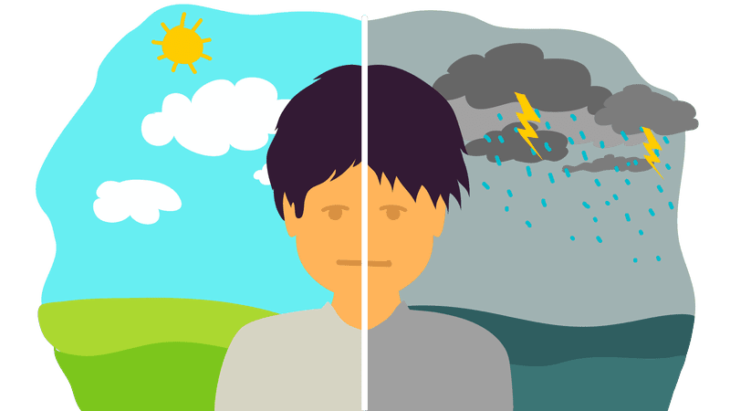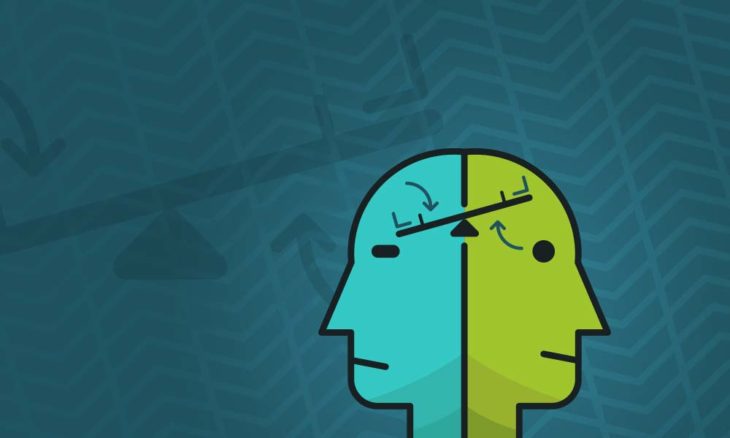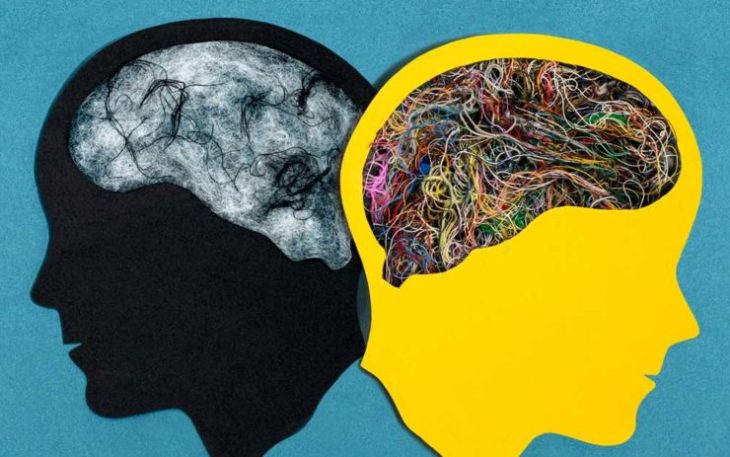Bipolars are criminals. Homicidal maniacs. Dangers to the public. Violent and in need of institutionalization. Selfish people acting out in an attempt to gain attention.
Hi, I’m Megan, I’m bipolar and I am none of these things. And I’m none of the hundreds of other common misconceptions about bipolar, either.
Bipolar disease (or “manic depression”) is sort of a strange beast. So much of what people think about it is stuck in the ‘40s, when home confinement or an institution were the sole options for “treatment.” Many people still don’t even believe it exists (like my mother). Most people don’t understand it – even the scientists researching it. And I’ll admit, a lot of the time I don’t understand it either.

In recent years, scientists have learned that bipolar exists along a spectrum – a sliding scale – of mood disorders . At one end might be depression, which most people have a pretty good grasp of. Then you get towards the middle, and there you’ll find that there are actually TWO kinds of bipolar. There’s Bipolar II, in which people experience major depressive episodes, but not full-blown manic episodes. Instead, they experience hypomania, which is a much less severe version of mania. Those with Bipolar II also do not experience certain psychotic features, such as hallucinations or delusions. (For the record, psychotic definitely does not equal Christian Bale hacking you to pieces in his living room.) Bipolar I, however, means you have experienced both major manic and depressive episodes, and possibly some of the psychoses I mentioned above.
It’s pretty easy to imagine what a depressive episode feels like – especially with the prevalence of prescription med commercials these days. My depressive episodes have traditionally felt a lot like those commercials, except … worse. It feels like crushing grief, all the time. The worst grief you can imagine hitting you in the face every time you wake up – and then extraordinary frustration because … you have NOTHING to feel this level of grief over. Nothing! It’s just there. And it won’t go away; it haunts you. All you want to do is sleep. You don’t get dressed. You don’t bathe. You don’t walk your dogs or make dinner. You don’t answer your phone, even when your sick mother is calling. It’s just a void. And it feels inescapable. And when you feel like that, you crave mania the way a dope sick addict craves the needle. Because you are convinced that if the mania comes, you’ll be fine.
And at first, you are. You are out of bed, you are dressed, and man are you plowing through your chores. The house has never been so clean. You’re losing weight again (never mind that it’s because you are forgetting to eat). The dogs are happy, your friends are thrilled that you are being social again. You are speeding through things at work and your boss loves you. But then cracks start to appear. You see a cat in your house. (You don’t have cats.) Driving across that overpass, you think, “Oh my God, wouldn’t it be awesome to go over the edge? I bet if I got up enough speed, it would totally work!” You start forgetting things. You can’t stop running laps around your block. Suddenly, it’s like you’ve been on a cocaine binge for two months.

Source: Betts Psychiatric
If you are like me, this is the really dangerous part. Not because you are so manic, but because this mania quickly crashes into what is known as a mixed state. Rage seeps in. Your skin is crawling. It feels like a million fire ants are just below the surface, creating a weird moving sensation. And then maybe you start to have thoughts of self-injury. The razor is my weapon of choice, or burning. My scars are all hidden. I am ashamed of them; those actions are not something I’m proud of. Sometimes, when thoughts of suicide creep in, I have cut just to keep them at bay – because cutting is better than killing, my mixed-up mind thinks. The mixed states are considered especially dangerous because you are having horrible, dangerous thoughts – AND you have enough energy to act on them.
But you know what? When you are being treated properly, all these symptoms dissipate, just as high blood pressure can be treated with medicines.
Some bipolars just swing between depression and mania. Some have mixed episodes like I do. It’s different for every person, which is one reason bipolar can be difficult to treat. Often it is initially mis-diagnosed as depression – because we only seek help when we feel depressed. (When we are manic, we feel great, so why would you seek help?) In these cases, it’s only when the antidepressants bring on a bout of mania that bipolar is diagnosed. Other times, bipolar is diagnosed from the outset.
It may take many tries to settle on the medicine, or combination of meds, that will appropriately control the symptoms and get your brain’s chemistry back in order. Contrary to what many believe, bipolar is not a behavioral disorder. It is a medical disorder in which brain chemicals just don’t fire right, or don’t produce in the correct proportions. The medicines help balance all that out. Don’t let pop culture fool you into thinking the meds make you a zombie. They don’t. When they are barely working, they dull the edges at best. When they work … suddenly you feel like you are you again. And therapy is also usually called for, to help with the behavioral aspects of the disease.

Source: Rogers Behavioral Health
It’s been almost six years since I was first diagnosed. I was crushed the day my doctor told me that’s what he thought I was dealing with. My family has never believed in mental illness. It was always just “pull yourself up by your bootstraps and get on with it.” So that’s what I had been trying to do.
Bipolar has cost me relationships, gotten me in terrible debt (massive spending is a key indicator of mania), caused problems with my family, lost me two jobs and even landed me in the psych ward (a voluntary commitment, and one of the best things I’ve ever done). A lot of this was due to going on and off medicines, and going in and out of therapy, as well as creating unstable living conditions for myself – all of which is very common.
I have to pop the right pills every day. I can’t drink anymore, because it screws with my brain chemistry. I still have days where I feel manic or depressed. I have to see a therapist and a psychiatrist. All of this can be a lot for other people to process. It’s hard to convince them that I’m not going to go off the deep end right in front of them. And I won’t, as long as I stick to my regimen. Bipolar is a chronic disease, and I know I will have to do these things for the rest of my life—but I’m thrilled to do so, because it means I get to have a life.

Source: Goop
I’ll be getting married this summer and moving to Japan in the fall. I am working the way I want to work. I’m proud of where I’ve gotten – and not because bipolar is a handicap to get over, but because it has taught me so much about what is important. Because it has shown me parts of myself that I never knew were there; I understand so many things about myself that I might have missed. I have known the extreme highs and lows of my brain, and all the spots in between – a very unique experience. I have found depths of creativity within myself that I never knew existed, and created art I never thought possible. Where once I saw bipolar as a curse, I now see it as a peculiar gift. And even though I still struggle with it sometimes, and always will, I no longer regret the fact that I am bipolar.
Original by Megan Southwick
